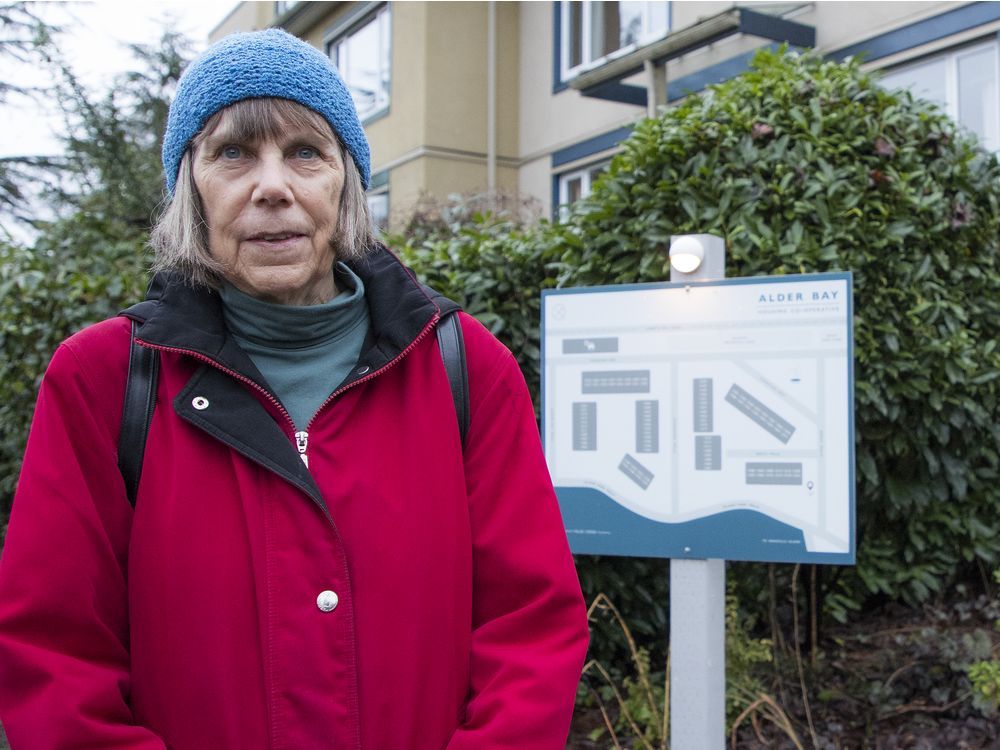Dan Fumano: 'Watershed year' for future of False Creek, thousands of city co-ops

Credit to Author: Dan Fumano| Date: Sun, 26 Jan 2020 18:00:05 +0000
Like many of the area’s long-term residents, retired librarian Nancy Hannum describes her False Creek South co-op community in almost idyllic terms, as a place where people know most of their neighbours and even strangers can be called upon for help.
But in the very same neighbourhood, she says, “there’s an underlying unease about what’s coming.”
Hannum’s co-op is one of more than 50 on city-owned land in Vancouver. And like thousands of other co-op residents, she’s been waiting for the city to release a public discussion paper expected to set a framework for the future of Vancouver’s housing co-ops.
“First it was going to come in July. Then it was maybe September,” Hannum said. “People think it’s just stalling, they aren’t sure it’s ever going to come.”
That long-delayed white paper, described as crucial not only for almost 4,000 co-op households on city-owned land but also for the future of the city’s non-market-housing strategy more broadly, is finally expected this week.
The paper will be important for the more than 50 co-ops on city-owned land, scattered across the city. But the situation is especially tense in False Creek South, where some co-ops have only two or three years remaining on their leases, after more than seven fruitless years of trying to negotiate extensions with the city.
Worries in the neighbourhood ratcheted higher still this month after a Jan. 3 op-ed in The Tyee under the headline: “Vancouver looks poised to sell off False Creek South.”
In it, a University of B.C. professor and one-time mayoral candidate, Patrick Condon, urged the city: “Don’t sell off a giant chunk of our affordable housing.”
That article, Hannum said, “really increased the tension.”
“Everybody freaked out,” she said. “People had to calm down that their land wasn’t going to be sold.”
Condon’s article has since drawn criticism, not only from the city officials whom he admonishes in it, but from co-op residents and their advocates, who say there’s nothing to indicate the land might be sold off.
The False Creek South Neighbourhood Association talked about the article in this month’s edition of its newsletter and in an email to its members saying “nothing” in their planning committee’s “lengthy involvement with the city has led it to conclude that this land is to be sold.”
“In fact,” the email continues, the very first “engagement principle” initiated by the city states: “The city will continue to own the land over the long term.”
The article irritated many at city hall. Vancouver’s general manager of real estate, Nick Kassam, described it as “inaccurate,” and said there’s a “zero per cent chance” the city is looking to sell off False Creek lands.
Then Mayor-elect Kennedy Stewart poses for a photo in Vancouver on November, 1, 2018.
Mayor Kennedy Stewart was more forceful in his denunciation, saying: “I’m so disappointed in Prof. Condon. … It’s so irresponsible.”
“He should be ashamed of himself for this. He should be sure that as a professor, he’s talking the facts, and not just out being a wild activist who’s trying to inflame people’s fears,” said Stewart, who was a professor at Simon Fraser University before entering politics.
Stewart laid out his ground rules entering the co-op lease situation.
“First, we won’t be selling off any land. Absolutely, concrete, 100 per cent, not selling off any land,” Stewart said. Second, he said, there won’t be any displacement, and third, no one in any unit should pay more than 30 per cent of their income towards rent.
“I would say South False Creek has been a global showcase for the co-op model, and it needs to continue and expand,” Stewart said.
Condon said he was glad to hear Stewart say he wanted to expand non-market housing on city-owned land. Regarding the mayor’s criticism of his article, Condon said: “That’s all right, he’s critical of me anyway.”
Condon, who selected False Creek as the location to announce his mayoral candidacy in 2018 before later withdrawing from the race, said he was “glad to give voice to some of the anxieties of the residents down there, and wanted to bring some attention to what I think is a core issue.”
And even if the city doesn’t sell off the publicly owned land to private interests — as B.C.’s provincial governmentoften did in previous years, drawing great criticism — Condon worries that the properties could be developed with expensive leasehold condos, instead of more non-market and social housing.
Of course, it’s perfectly natural — and even desirable — that articles chastising politicians and public officials should sometimes draw their ire. But in this case, even some of those who have previously criticized city hall’s handling of this file took exception to the article.
Thom Armstrong, executive director of the Co-operative Housing Federation of B.C., isn’t sure what will be in the city’s paper when it’s released, but said its contents will be crucial.
“2020 is the year we have to solve this issue. And we have to solve it on a basis that’s fair and reasonable for the co-ops and realistic for the city,” Armstrong said. “It’s a watershed year.”
Armstrong has publicly criticized the city’s hardline approach to the False Creek co-op leases. But Condon’s article, he said, was “totally alarmist” and “not particularly helpful.”
“But if you leave a festering problem like that unsolved long enough, people naturally speculate or assume the worst,” Armstrong said. “One easy way to put a stop to those rumours is to come to the table and make a deal.”
The coming discussion paper should give co-op residents — and those hoping to one day join their ranks — an indication soon of just how close the city is to making those deals.